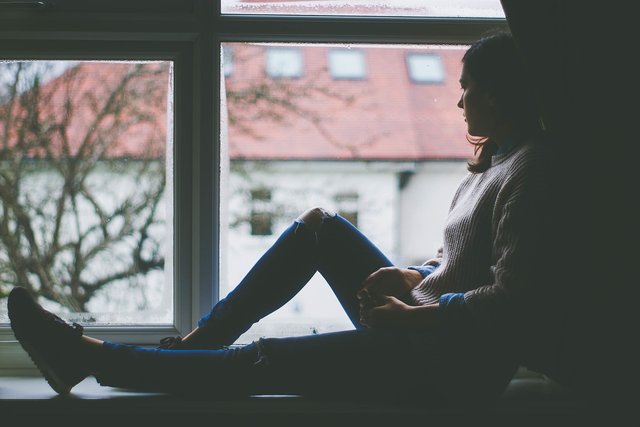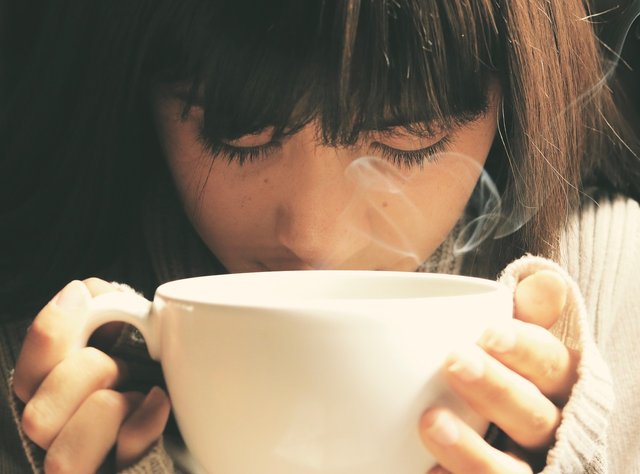To what extent is the negative media, media biases responsible for depression?
This week's question of the week, 'To what extent is the negative media, media biases responsible for depression?' in this article am going to talk mainly on social media biases .
Parallel to the growth of the Internet and the use of social media , there is currently an increase in cases of depression and other mood disorders among adolescents, which sometimes come to be lethal.

Credits
The social media , like Facebook, Instagram, Tumblr, and many others, have become an icon of modern times. Facebook is the most known and used platform in the world. Almost a third of the world's population has a profile on this site.
Parallel to the growth of the internet and these platforms, there is currently an increase in cases of depression and other mood disorders among adolescents, which sometimes come to be lethal. Numerous research on the use of social media has repeatedly shown a correlation between increased use of social media and increased cases of depression and mood disorders.
The correlation is clear, but the question persists: why?
Above all, the causal relationship between the two variables is still unclear: Is the excessive use of social media to cause depression ? Or do depressed people tend to overuse social media ?
To try to answer these questions, further studies and scientific research are desirable. However, we can reflect on how social media can act on the human mind.
Almost every social goal is to spend as much time as possible online to their users, to be able to show at that time as many ads as possible. To achieve this, dependency triggers are used to reward people who stay longer online.
In the same way that dopamine: the neurotransmitter responsible for feelings of gratification and pleasure, is released when gamblers play or alcoholics drink, social media are littered with triggers that plausibly experience feelings of pleasure and release dopamine.
A phenomenon that can be activated during the use of social media is 'emotional contagion'. Emotional contagion has been extensively studied in real interactions between people. Recent research has investigated the same phenomenon in online interactions and showed how happiness, anger and sadness can be transmitted from one individual to another through social media. In a study conducted by Ferrara and Yang (2015) on a sample of 3800 users, it was analyzed how contagious the negative emotional content of a post displayed online could be. This can be extremely harmful if combined with the issue of virtual cultural 'pop-ups '.
Credits
What do i mean by virtual cultural 'pop-ups'?
The applications use powerful algorithms to provide users with content that is more in keeping with their interests, so as to engage them, make them interact on the social network and keep them entertained for as long as possible.
Users tend to interact with the same type of content and this allows the social algorithms to always show the same kind of content, thus favoring the creation of a virtual 'pop-up ', which the user is not aware of. For example, a user who clicks on an article that talks about a shootout, or comments on a divorce friend's post, causes the algorithms to create 'pop-ups' with the most negative content and in this way will be shown online more negative content because that's what he showed interest for.
All this combined with emotional contagion can severely and negatively affect an individual's emotional state.
Other consequences of the use of Social Media
Indirectly, social media act as catalysts for destructive behaviors such as cyberbullying and compulsive seeking for approval. In particular, compared to the behavior of cyberbullying (which I have already talked about here) , users can hide behind anonymity and escape from the consequences of these acts of harassment, which can have fatal consequences.
An additional side effect of applications is that they lead users to show only the salient aspects of their lives, posting only the positive and important moments, leaving out the negative and the trivial. Users compare their lives, especially the worst parts of themselves, with what is posted by their friends, what may result is emotions of shame, envy and sense of inferiority.

Credits
Conclusions
A study conducted in the UK by the Royal Society for Public Health tested the psychological impact of social media on 1500 adolescents and found that almost all social media have a negative impact on the psychological well-being of the subjects, causing states ranging from anxiety to the loss of self-esteem.
The results of the research show that cases of depression have increased with the growth of social use, and the higher the number of socials used by a single person, the greater the chances of having mood disorders. What is not shown in the research is whether social media causes depression ? or whether depressed people use social media excessively ? . To answer this question a further research is needed to investigate this difference in depth and the causal relationship between the two variables.
Congratulation afifa! Your post has appeared on the hot page after 3min with 13 votes.
Thanks for highlighting social media as a very real contributor to depression because none of us have really talked about it on the qotw!
You've been upvoted by TeamMalaysia community. Here are trending posts by other TeamMalaysia authors at http://steemit.com/trending/teammalaysia
To support the growth of TeamMalaysia Follow our upvotes by using steemauto.com and follow trail of @myach
Vote TeamMalaysia witness bitrocker2020 using this link vote for witness
The media is a double-edged weapon. Sometimes they allow a healthy recreation, but when they are able to affect health, it is necessary that the affected person perform a deep analysis of himself with the help of experts to convince him to decrease the dose of electronic content that is introduced in the mind.
I liked how you incorporated research and studies in your answer. Completely agree with all the points you made.